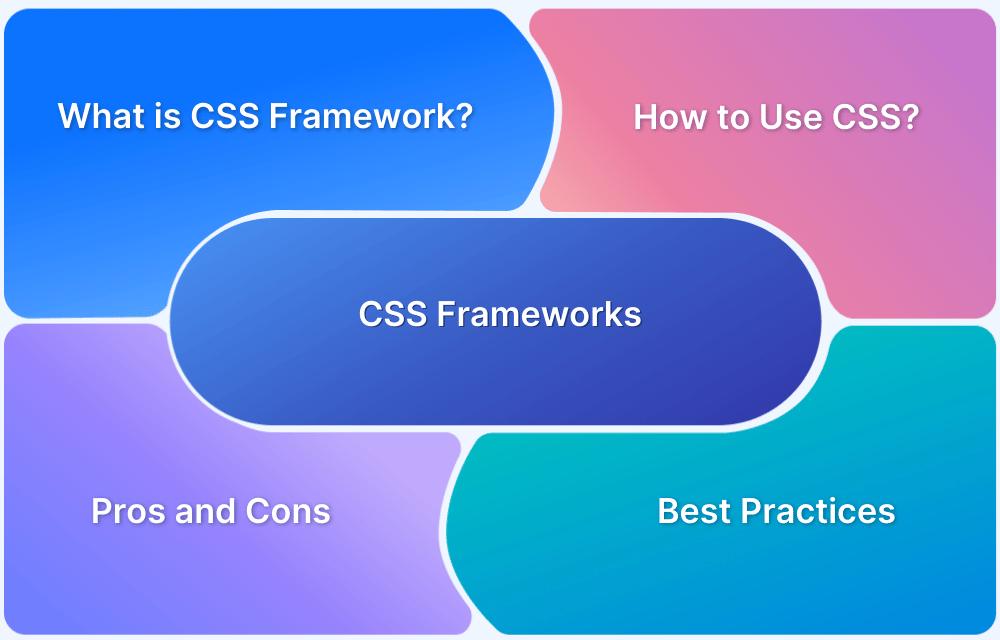Digital Insights
Your go-to source for the latest in technology and gadget reviews.
Frameworks that Dress Your Website for Success
Discover the best frameworks to elevate your website's design and boost your online success. Transform your site today!
Top 5 Web Design Frameworks to Elevate Your Site's Aesthetics
When it comes to creating visually stunning websites, choosing the right web design framework can make all the difference. In this article, we will explore the Top 5 Web Design Frameworks that can significantly enhance your site's aesthetics. Whether you are a seasoned developer or a beginner, these frameworks provide various tools and components that simplify the design process while allowing for impressive and customizable layouts.
- Bootstrap - Known for its grid system and responsive design, Bootstrap is a favorite among web designers. It allows for rapid development and ensures your site looks great on all devices.
- Foundation - Similar to Bootstrap, Foundation offers a flexible grid system but stands out with its advanced customization options, making it perfect for unique and intricate designs.
- Bulma - This modern CSS framework is lightweight and easy to use, providing a clean and minimal aesthetic that appeals to designers focusing on simplicity.
- Materialize - Inspired by Google's Material Design, Materialize helps create beautiful, intuitive interfaces, ensuring a visually appealing experience for users.
- Tailwind CSS - Unlike traditional frameworks, Tailwind offers utility-first CSS classes that enable developers to build custom designs directly in their markup, elevating aesthetics through creative flexibility.

How Responsive Frameworks Can Enhance User Experience on Your Website
In today's digital landscape, having a responsive website is not just a luxury; it's a necessity. Responsive frameworks, such as Bootstrap and Foundation, allow developers to create layouts that adapt seamlessly to various screen sizes and devices. This enhancement of user experience is crucial as users increasingly access websites through smartphones and tablets. A well-implemented responsive design ensures that content is easily readable, navigation is intuitive, and interaction is smooth—ultimately leading to lower bounce rates and higher user engagement.
Moreover, utilizing responsive frameworks can significantly boost your website's SEO performance. Search engines prioritize sites that offer a consistent experience across devices, which means that adopting a responsive design can lead to better rankings in search results. Additionally, frameworks come equipped with built-in features that streamline development and help maintain user experience consistency, such as grid systems and pre-styled components. By implementing responsive frameworks, you not only improve usability for visitors but also increase the likelihood of attracting organic traffic to your site.
Choosing the Right Framework: Key Factors for a Successful Website Design
Choosing the right framework for your website design is crucial for ensuring both functionality and aesthetic appeal. When considering options, it's important to evaluate factors such as scalability, which refers to how well the framework can handle increased traffic and content over time. Additionally, pay attention to the learning curve; some frameworks come with extensive documentation and community support, making them easier to adopt. Other key considerations include performance optimization, security features, and compatibility with necessary plugins or tools that enhance user experience.
Another important factor to consider is customization. The right framework should allow designers and developers the flexibility to create unique features that cater to their specific audience. It's also wise to assess the cost associated with implementing the framework, as some may require ongoing maintenance fees or premium components. Lastly, evaluate the framework's mobile responsiveness, as a growing number of users access websites through mobile devices. By analyzing these key factors, you can make an informed decision that contributes to your website's overall success.